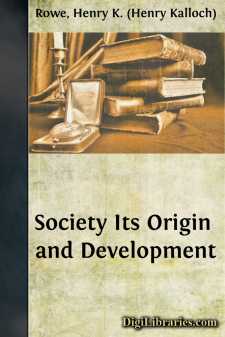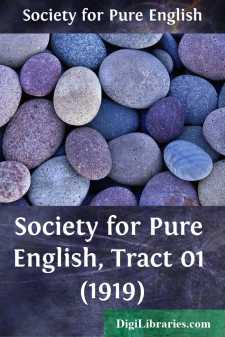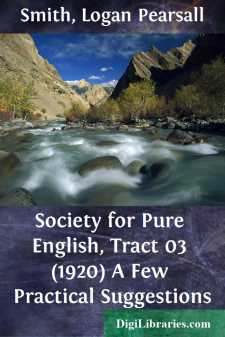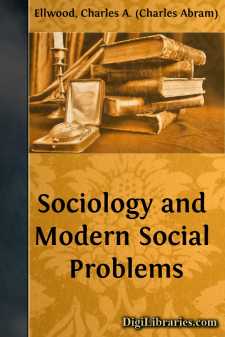Categories
- Antiques & Collectibles 13
- Architecture 36
- Art 48
- Bibles 22
- Biography & Autobiography 813
- Body, Mind & Spirit 142
- Business & Economics 28
- Children's Books 15
- Children's Fiction 12
- Computers 4
- Cooking 94
- Crafts & Hobbies 4
- Drama 346
- Education 46
- Family & Relationships 57
- Fiction 11828
- Games 19
- Gardening 17
- Health & Fitness 34
- History 1377
- House & Home 1
- Humor 147
- Juvenile Fiction 1873
- Juvenile Nonfiction 202
- Language Arts & Disciplines 88
- Law 16
- Literary Collections 686
- Literary Criticism 179
- Mathematics 13
- Medical 41
- Music 40
- Nature 179
- Non-Classifiable 1768
- Performing Arts 7
- Periodicals 1453
- Philosophy 64
- Photography 2
- Poetry 896
- Political Science 203
- Psychology 42
- Reference 154
- Religion 513
- Science 126
- Self-Help 84
- Social Science 81
- Sports & Recreation 34
- Study Aids 3
- Technology & Engineering 59
- Transportation 23
- Travel 463
- True Crime 29
Sort by:
The only Socialism of interest to practical persons is the Socialism of the organized Socialist movement. Yet the public cannot be expected to believe what an organization says about its own character or aims. It is to be rightly understood only through its acts. Fortunately the Socialists' acts are articulate; every party decision of practical importance has been reached after long and earnest...
more...
Until the middle of this (the nineteenth) century the favorite theory with those who attempted to explain the phenomena of History was the Great-Man-Theory. This theory was that once in a while through infinite mercy a great man was sent to the earth who yanked humanity up a notch or two higher, and then we went along in a humdrum way on that level, or even sank back till another great man was...
more...
CHARACTERISTICS OF SOCIAL LIFE 1. Man and His Social Relations.—A study of society starts with the obvious fact that human beings live together. The hermit is abnormal. However far back we go in the process of human evolution we find the existence of social relations, and sociability seems a quality ingrained in human nature. Every individual has his own personality that belongs to him apart from...
more...
by:
Henry Bradley
ON THE PRONUNCIATION OF ENGLISH WORDS DERIVED FROM LATIN [This paper may perhaps need a few words of introduction concerning the history of the pronunciation of Latin in England. The Latin taught by Pope Gregory's missionaries to their English converts at the beginning of the seventh century was a living language. Its pronunciation, in the mouths of educated people when they spoke carefully, was...
more...
SOCIETY for PURE ENGLISH (S.P.E.) The Society was founded in 1913, and was preparing to enter on its activities, when the declaration of war in Aug. 1914 determined the Committee to suspend proceedings until the national distraction should have abated. They met again after the Armistice in 1918 and agreed to announce their first issues for October 1919. Although present conditions are not as favourable...
more...
by:
Robert Bridges
ENGLISH HOMOPHONES Definition of homophone. When two or more words different in origin and signification are pronounced alike, whether they are alike or not in their spelling, they are said to be homophonous, or homophones of each other. Such words if spoken without context are of ambiguous signification. Homophone is strictly a relative term, but it is convenient to use it absolutely, and to call any...
more...
The Naturalization of Foreign Words. There is no point on which usage is more uncertain and fluctuating than in regard to the words which we are always borrowing from foreign languages. Expression generally lags behind thought, and we are now more than ever handicapped by the lack of convenient terms to describe the new discoveries, and new ways of thinking and feeling by which our lives are enriched...
more...
I The English language is an Inn of Strange Meetings where all sorts and conditions of words are assembled. Some are of the bluest blood and of authentic royal descent; and some are children of the gutter not wise enough to know their own fathers. Some are natives whose ancestors were rooted in the soil since a day whereof the memory of man runneth not to the contrary; and some are strangers of...
more...
I. NOTES ON THE FUNCTION OF METAPHOR The business of the writer is to arouse in the mind of his reader the fullest possible consciousness of the ideas or emotion that he is expressing. To this end he suggests a comparison between it and something else which is similar to it in respect of those qualities to which he desires to draw attention. The reader's mind at once gets to work unconsciously on...
more...
CHAPTER I THE STUDY OF SOCIETY What is Society?—Perhaps the great question which sociology seeks to answer is this question which we have put at the beginning. Just as biology seeks to answer the question "What is life?"; zoölogy, "What is an animal?"; botany, "What is a plant?"; so sociology seeks to answer the question "What is society?" or perhaps better, "What...
more...











